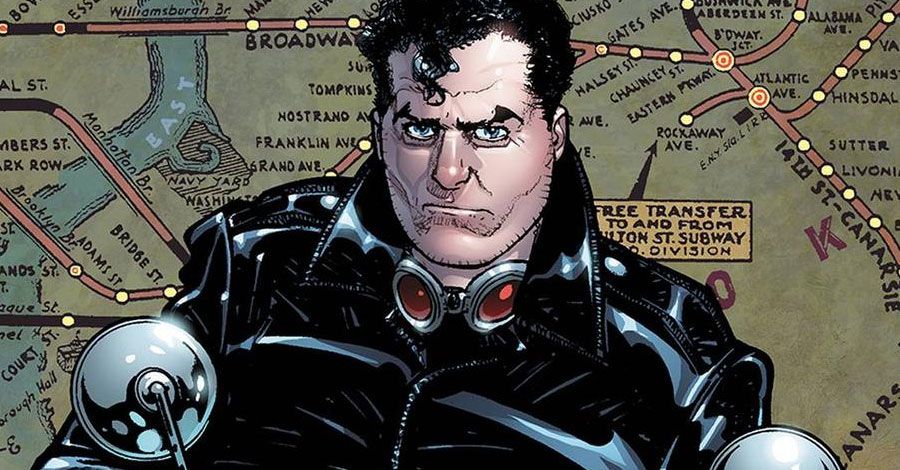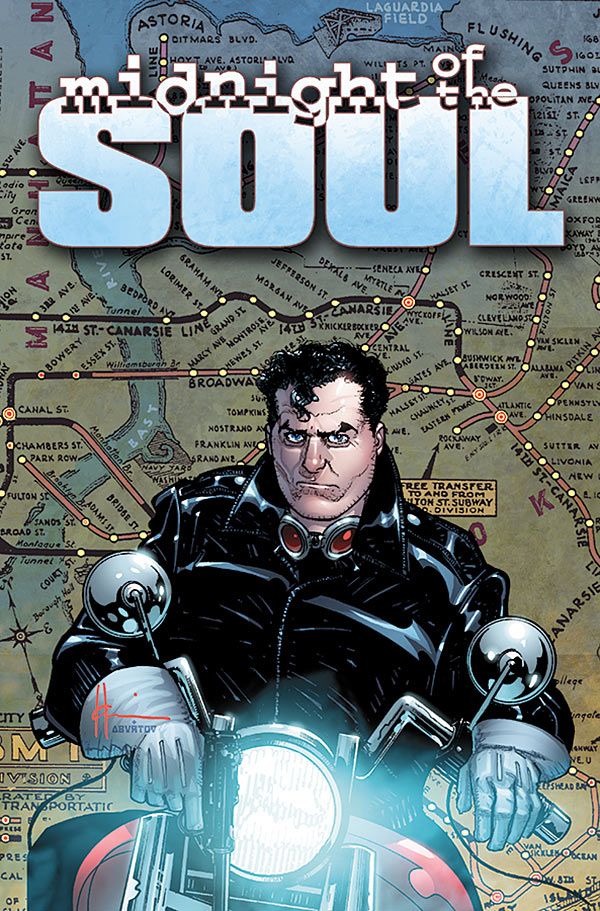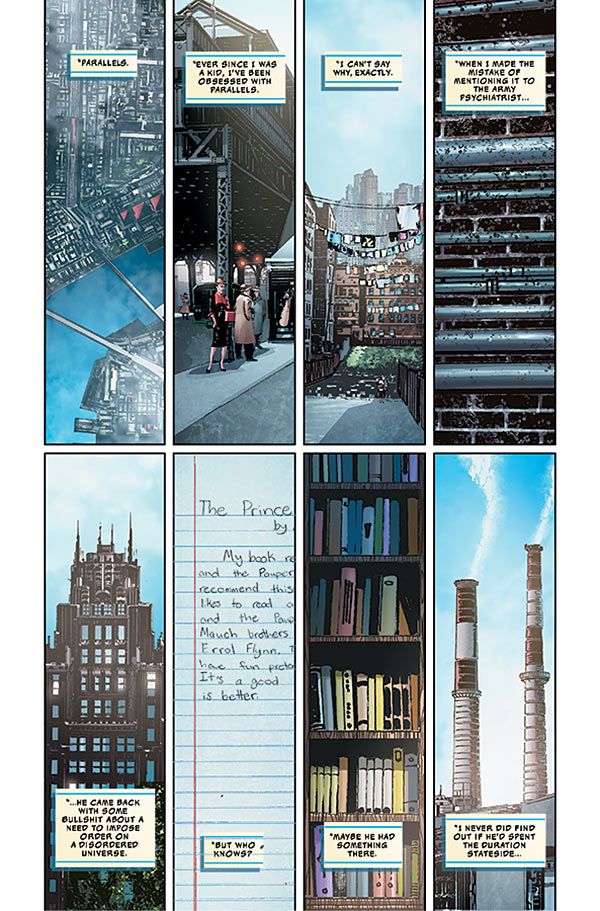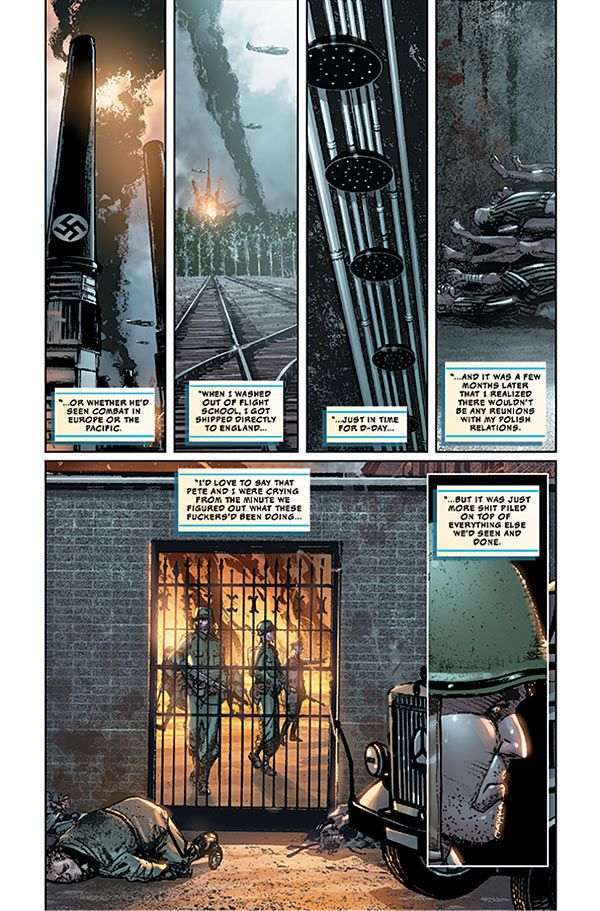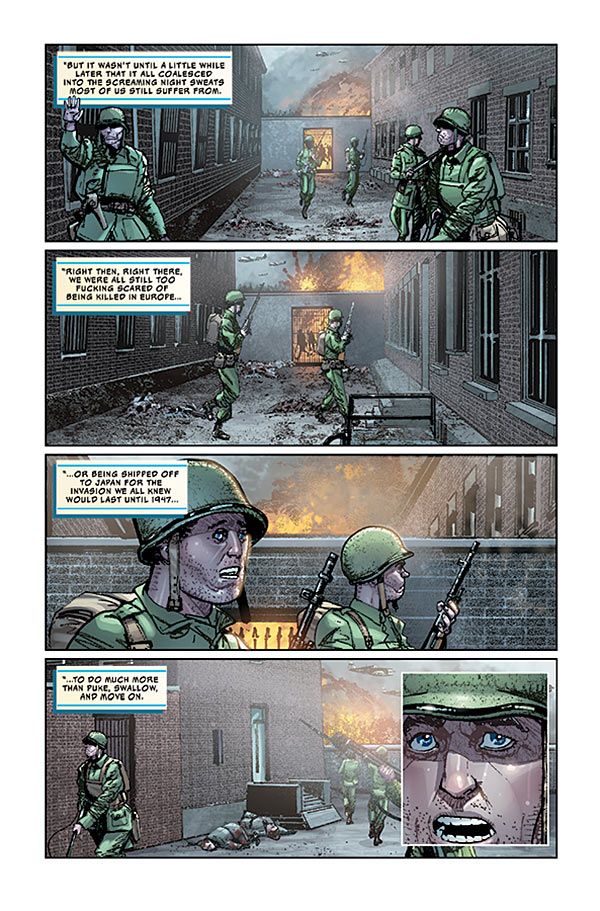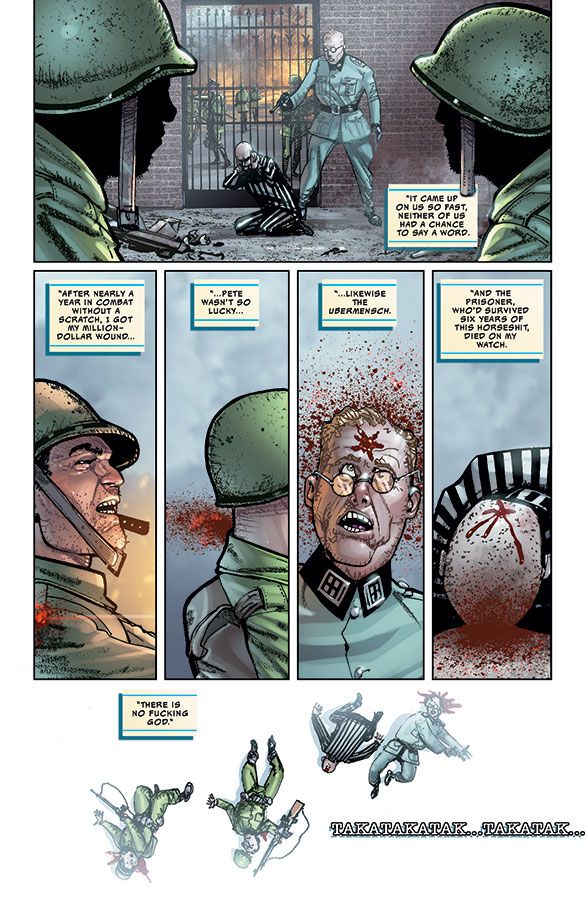It's 1950, and Joel Breakstone is not in a happy place. In addition to struggling with shadows of his military service, there's the alcohol he's using to cope with his mental and physical pains. His wife's frustration with his years-long struggle to be present in their life together has torn a raw, ugly gash across their marriage, and five years of toil at his typewriter hasn't produced a single salable piece of writing. In short, things are all-around unpleasant for Joel.
RELATED: Remender, Chaykin & More Bring Rock Music, Terrorists & Winnebagos to Image
That sounds like the type of gritty noir Howard Chaykin excels in, doesn't it? The creator's latest comics work, aptly titled "Midnight of the Soul," is a 5-issue miniseries debuting in June from Image Comics, and as you might imagine, things are going to get tawdry, and will go quickly from bad to much, much worse.
CBR News spoke with Chaykin about the story he's been wanting to tell for years, his deeply planted Black Mask literary roots, and the vagaries of of creative pursuits.
CBR News: Where is Joel at when the first issue picks up?
Howard Chaykin: Joel is seriously damaged from his wartime experiences, specifically and particularly his near fatal wounding in the midst of the liberation of Buchenwald. He's weaned himself off morphine with alcohol, or as some call it, changing seats on the Titanic. His life is tiny, and getting smaller by the day.
Unlike a lot of other would-be writers, Joel seems to be actually pursuing his craft. He's just failing miserably to actually sell anything. What's holding him back?
Nothing but the exigencies of life. Consider the life of the writer, or the artist, or the actor, or the singer -- or any creative pursuit. Despite the universal belief in a meritocracy, the reality is far more complicated, based on timing, choice of material, attitude, presentation -- so many factors that cloud perception of everything from basic competence to excellence. In truth, rejection is a far more commonplace experience than success.
And who can say -- maybe his stuff just stinks.
His marriage is a total sham, and his only real companion is a bottle. These traits could be mere cliches of a hard-luck loser, but you find humanizing touches that draw the reader into Joel's situation and make them palpable elements of his struggle. What keeps you coming back to the hard-bitten world of noir losers?
I'd prefer to think that Joel's marriage isn't, or certainly didn't start as, "a total sham," but rather that Patricia has sunk into a well of justified disappointment at her husband's shut down detachment.
Patricia is no saint -- her behavior is utterly unacceptable -- and yet, also utterly comprehensible. Joel, for his part, is nowhere near dealing with the rage, guilt and shame that informs his desperate need for nullity.
And I must admit, my first reaction here was to deny my previous experiences in the world of what you call hard-luck losers, until I sat back and recalled Cass Pollack, the protagonist if not outright hero of "Black Kiss," and I get your point. Whereas I'm frequently perceived as a pulp fan, my actual interest is in the "roman noir" of the Black Mask guys -- W.R. Burnett, David Goodis, Horace McCoy, Dashiell Hammett, and the two, unrelated Cains, Paul & James M., as well and their more contemporary equivalents, particularly Jerome Charyn and Marc Behm. These writers -- and just as surely, the post World War II films their novels informed and inspired -- are the inspiration for much of my work and sensibility.
Another, completely personal factor is a boyhood spent in Brooklyn tenements in the 1950s, surrounded by hoodlums, tabloids and beer reeking neighborhood taverns -- a world that still resonated with the photographic journalism of Weegie.
They say you can't go home again, but sometimes you can't get the hell out, either.
How does Joel's devotion to alternate history sci-fi reflect his struggles?
If, to quote one of Walt Disney's songwriters, "...A dream is a wish your heart makes..." then science fiction is a waking dream, a wish for knowledge of, if not a controlling influence on, the future. In that regard, alternate history is about what the website Uchronia calls Divergence -- the point at which a different choice created a different pattern.
I'd like to think Joel's stated obsession with parallels, and his adult work as a failing alternate history novelist, reflect both an attempt to impose order on a naturally chaotic universe -- and an acknowledgment of regret.
Joel finds himself wanting revenge on his wife Patricia, but it turns out he's not the only person gunning for her. Given his current state of mind toward her, why can't he just wash his hands of it and walk away?
As noted above, Joel is a mess -- an engine of rage, with all that anger kept at bay by drinking at everything. His accidental discovery of Patricia's betrayal is simply a tipping point. Whether he knows it or not, he's been waiting for something -- anything -- to shove him off the edge. Of course, he has no idea what that edge is, or what's at the bottom of the hole into which he's about to leap.
As for Patricia, she finds herself in a desperate position through no real fault of her own -- a fact which has never meant a damned bit of difference in the real world.
Patricia's brother Steve is a real slimeball. I imagine Joel hasn't seen the last of him, has he?
Oh, yeah -- Steve is loathsome, a tribute to the sort of roles played by the great Dan Duryea. And yes, he's a player here until the end of this first arc in the life and times of Joel Breakstone.
You move back and forth between creator-owned work and company projects. Is this just a matter of what projects are available at a given time?
Yes, and, of course, no. The comic book business is packed to the rafters with very talented hobbyists who have no understanding or interest in time management. These people have created a culture in which deadlines are functionally irrelevant. I come of a mindset that my time and the publisher/client's time are of equal value, which enables me to create and operate my business -- and make no mistake, working as a freelance cartoonist is a business -- on a schedule that makes the moving back and forth you mention my choice -- certainly for the most part.
What about your shifts between sole authorship and collaboration -- you provide only art, as you did recently on "Satellite Sam" with Matt Fraction, you write for other artists, and you provide the whole package. Is there a motive for pursuing different parts of the comic book creative process as different times?
As noted above, I consider myself a cartoonist -- a comics man, who both writes and draws. And, as I've said elsewhere, I'm astounded, not to say dismayed, by how little the enthusiasts -- and just as importantly, the talent representatives of many of the "writers" in comics -- understand just how much of the writing in our visual medium is provided by the man or woman who provides those visuals.
I regard working with someone else's script, or providing the template that a script delivers to another drawing talent, as a challenge to my skill sets and, occasionally, my patience. But then again, we -- by which I mean, I -- can always use another lesson in patience.
You've been in the comics business for quite a while. Coming off a year-plus long collaboration with a writer like Matt Fraction, do you still find new techniques in your toolbox?
I have been here a while, and I'd like to think one of the supporting elements of the longevity of my career -- because it sure the hell isn't being nice, political or schmoozingly good in the room -- derives from my capacity to remain open to new ideas, whether I like them or not.
As the Van Morrison of comics, I'll quote Van the Man -- "...Now for the good shit...later for the garbage."
Anything else in the works for you?
This winter, Image will publish the first six issue arc of a new series, entitled "The Divided States of Hysteria," which tells the story of the aftermath of the next major terrorist attack on the United States. I've been mining my past for narrative for a while -- now, it's time to take my current insane paranoia and get it out there, the world to see.
Howard Chaykin's "Midnight of the Soul" #1 arrives June 8 from Image Comics

